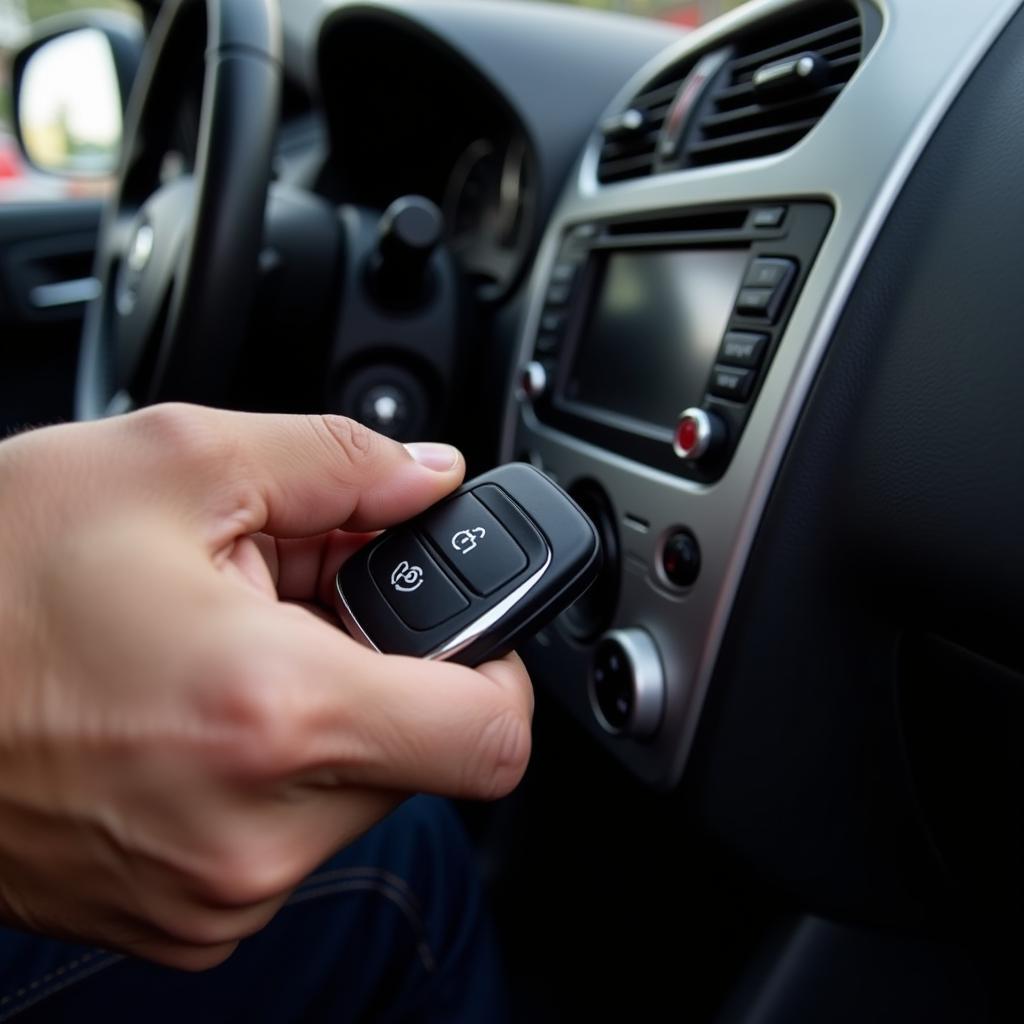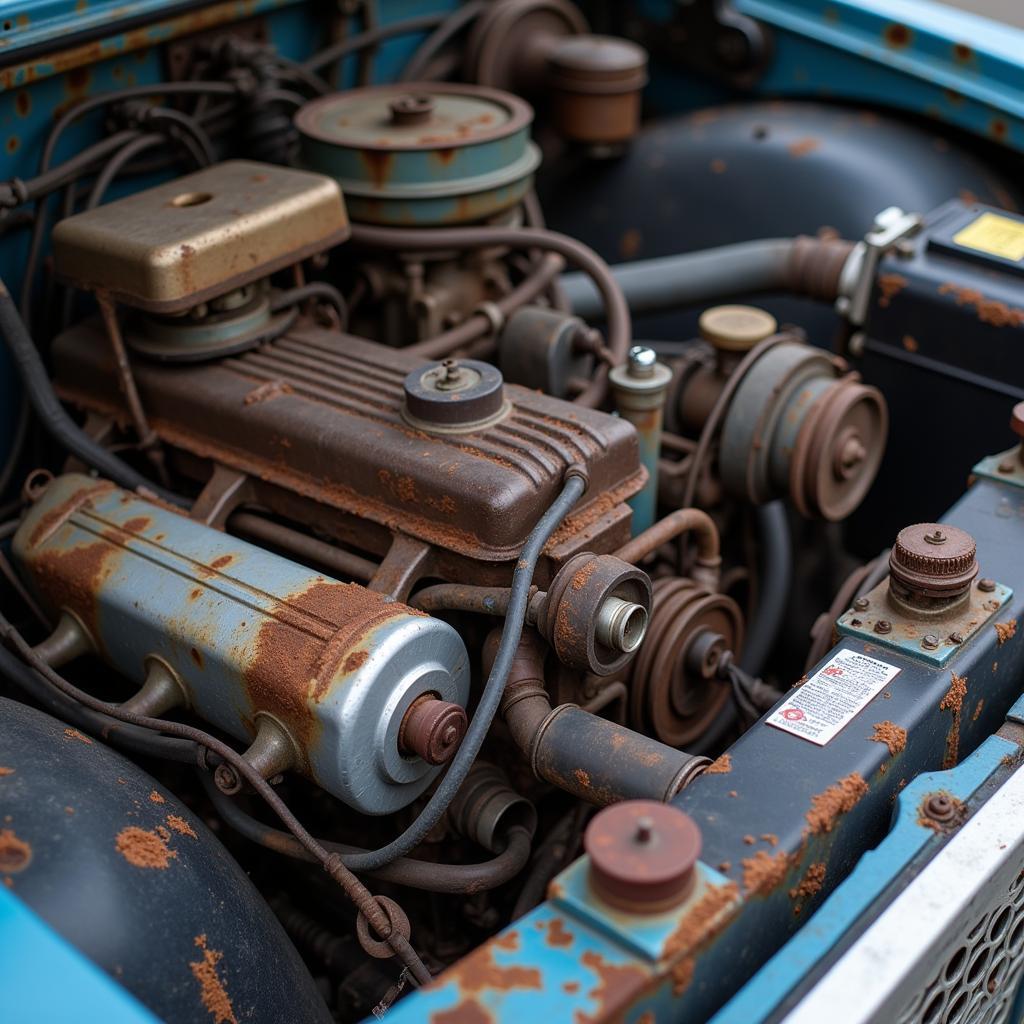Your car battery is the heart of your vehicle, providing the power to start the engine and run your electrical systems. When your battery dies, you’re stranded, and getting it fixed is crucial. Whether you’re a car owner, a mechanic, or a technician, understanding how to troubleshoot and fix a car battery that won’t start your car is essential.
This guide will walk you through the most common issues and provide practical solutions to get your battery back in action.
Checking Your Battery: The First Step
Before jumping into any repairs, it’s crucial to determine the root cause of the battery issue.
1. Check the Battery Terminal Connections
-
Loose or corroded connections: A common culprit is loose or corroded battery terminals. These can prevent proper electrical flow, hindering the battery’s ability to deliver power.
-
Inspect the terminals: Look for signs of corrosion, which appears as a white or green powdery substance. If present, clean the terminals using a baking soda solution and a wire brush. Make sure the terminals are securely fastened to the battery posts.
2. Test the Battery Voltage
-
Voltage Check: Use a multimeter to check the battery voltage. A healthy battery should read between 12.6 and 13 volts when not connected to the car. A lower voltage indicates a weak battery.
-
Load Test: If the battery voltage seems okay, a load test is necessary. A load test applies a simulated load to the battery to assess its ability to deliver power under stress. A failing battery won’t be able to maintain the necessary voltage under load.
-
Jump Starting: If the battery voltage is extremely low, a jump start might be necessary. Connect jumper cables to the battery terminals and another car’s battery, ensuring proper polarity (positive to positive, negative to negative).
3. Check the Battery Age and Charge
-
Battery Age: Battery life can be impacted by temperature, charging habits, and other factors. The average lifespan is three to five years, and a battery older than five years may need replacement.
-
Battery Charge: If the battery is fully charged but still not working, it might be a sign of a faulty battery.
Troubleshooting and Fixing Common Battery Issues
Now, let’s dive into some common battery issues and their solutions.
1. Dead Battery
-
Battery Failure: This is the most common cause of a car not starting. A dead battery simply doesn’t have enough charge to power the starter motor.
-
Jump Starting: The simplest solution is to jump start the battery with another car’s battery using jumper cables. This provides a temporary boost to jump start the vehicle.
-
Battery Replacement: If the battery is several years old, it’s likely time for a replacement. Check with a professional fix car battery shop for recommendations on the right battery for your car.
2. Battery Corrosion
-
Corrosion Prevention: To prevent corrosion, periodically clean the battery terminals using a baking soda solution and a wire brush. Make sure the terminals are securely fastened to the battery posts.
-
Apply a Corrosion-Resistant Coating: You can also apply a thin coat of petroleum jelly to the terminals to help prevent future corrosion.
3. Battery Draining Issue
-
Electrical Drain: A persistent battery drain might indicate a problem with the vehicle’s electrical system.
-
Find the Drain: Use a multimeter to test the electrical current flowing through different circuits while the car is off. Identify the culprit, and consult a mechanic to fix the issue.
4. Battery Not Charging
-
Alternator Issues: A faulty alternator is the most common reason for a battery not charging properly.
-
Alternator Check: Use a multimeter to check the voltage output of the alternator while the engine is running. A healthy alternator should generate about 13.5 to 14.5 volts. If the voltage is low, the alternator needs replacement.
-
Battery Charging: If the alternator is working properly, the battery might need a charge. Use a battery charger to fully charge the battery.
Expert Advice from David Miller, Certified Auto Technician
“Remember, a dead battery can be more than just a simple issue. If you’re unsure about the cause, it’s always best to consult a professional mechanic. They can properly diagnose the problem and ensure the battery is properly maintained.”
What to do If You Can’t Fix It Yourself
If you’re not comfortable with DIY repairs, or the issue seems complex, seeking professional help is essential. A reputable fix car battery shop can accurately diagnose the problem, replace the battery if needed, and ensure your car’s electrical system is working correctly.
FAQ:
Q: How long does a car battery last?
A: The average lifespan of a car battery is 3-5 years, but this can vary depending on usage and maintenance.
Q: What are the signs of a bad car battery?
A: Signs of a bad battery include slow cranking, dimming headlights, and the car not starting at all.
Q: How often should I check my battery?
A: It’s a good idea to check your battery terminals for corrosion and test the voltage at least once a year, especially during extreme temperature changes.
Q: Can I jump-start a car with a bad alternator?
A: You can jump-start a car with a bad alternator, but the battery will quickly drain again. It’s a temporary solution.
Q: How can I prevent my battery from dying?
A: To prevent your battery from dying, make sure it’s properly charged, keep the terminals clean, and avoid leaving electrical accessories on when the car is off.
Need Help?
For professional assistance or any questions about car battery issues, please contact us at [phone number]: +1 (641) 206-8880. We’re happy to help!






Leave a Reply